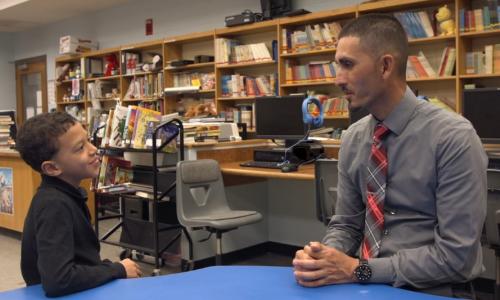If families are arriving in your district following a natural disaster in another place, there may be a wide range of questions and needs to address.
These include:
- housing, food, and shelter
- clothing (and perhaps winter clothing depending on the climate)
- medical care
- mental health support and resources for addressing trauma.
In addition, families need information in their home languages on topics such as:
- how to enroll in local schools
- how to access school records from prior schools
- how to access employment opportunities
- how to navigate their immigration process if they are arriving from another country.
You can start with a needs assessment of families who are arriving in your community. Partner with family liaisons and community organizations to find out the following:
- What are the particular issues and challenges that families are facing?
- What role can schools play in addressing those needs?
- What departments in our district need to be involved in this response?
- Who are existing or potential partners in the community that can help us?
- What can we learn from other districts with similar experiences?
In addition, you can:
- connect with organizations in the community to find out what services and supports they might offer
- learn from other school districts who have served displaced families.
Case study: Hurricane Maria
Following Hurricane Maria, Puerto Rican students and families who moved to the mainland faced challenges similar to those faced by many newcomer and refugee families (even though they are U.S. citizens), such as:
- limited options for housing and employment
- urgent needs for medical care
- post-traumatic stress
- extended separation from family, including immediate family members and elderly or sick relatives who could not travel
- not having winter clothing in colder climates
- the stress of adjusting to new environments
- limited or no access to school or employment records.
Schools across multiple states found numerous ways to support students and families from Puerto Rico, often in collaboration with multiple departments across school districts and community partners. The state of Ohio put together useful guidance for its schools on this topic.
Video: Supporting Students After Hurricane Maria: Success Stories from Syracuse, NY
To learn more about how schools in Syracuse, NY served the families displaced by Hurricane Maria, see the videos below.








Add new comment